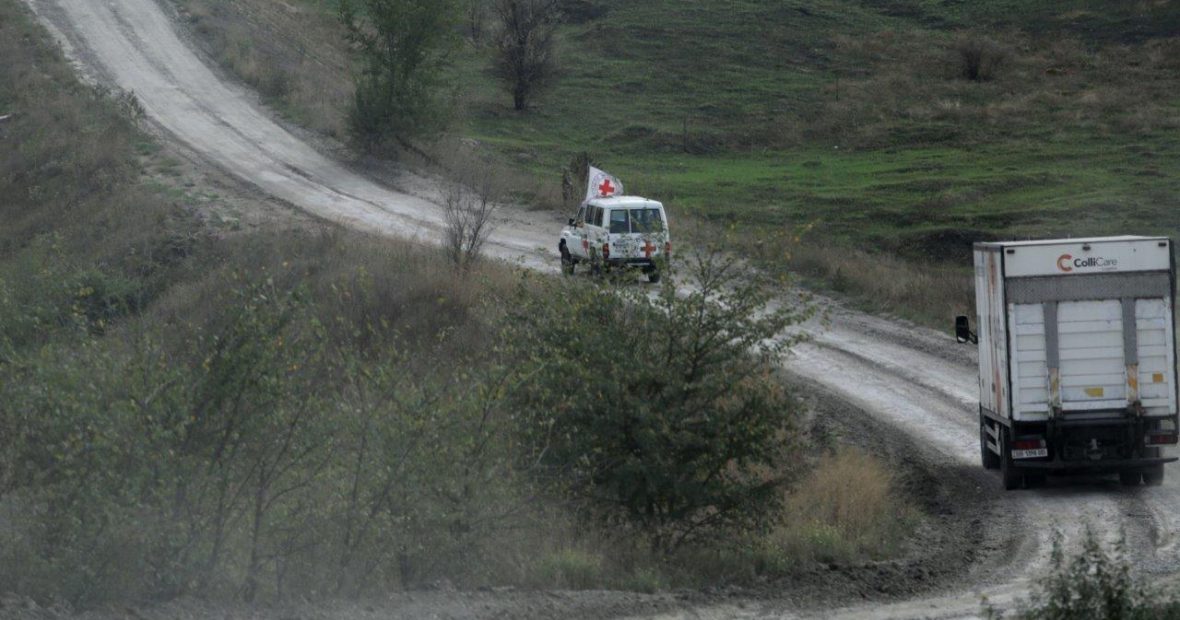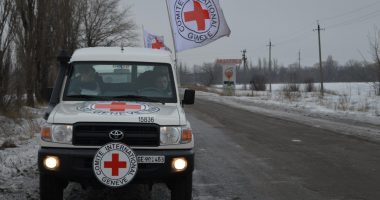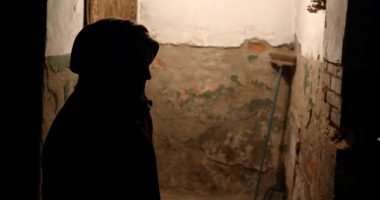Water stopped flowing in Toresk city and its neighbourhoods during the night on November 22. A total of approximately 80’000 people were affected by the shortage. Located nearby the line of contact, the pipeline was damaged for unclear reasons (military operations or were caused by the age of the water pipe) and couldn’t function properly. Quickly, heating stations were also under the threat of being stopped, leaving 45’000 people without warming system.
The damaged section of the pipe was in Pivdenne, the former Leninskoe village, in a very exposed and sensitive buffer-zone village.
“As we had already negotiated a reinforced cease-fire for a food distribution in the area, we requested the parties to the conflict to add the engineers of Voda Donbassa, the waterboard for Donetsk oblast, to our trip. The ICRC and Voda Donbassa staff entered Leninskoe safely on November 24th says Sarah A. Raoui, deputy head of the ICRC office in Slaviansk. “Fortunately, they were able to spot and inspect the destruction quickly.”
Four days later, ICRC’s further negotiations for a new reinforced ceasefire were successful and enabled Voda Donbassa to access again the location with the necessary staff, vehicles and machinery.
Deminers cleared the place which then allowed Voda Donbassa, accompanied by ICRC teams, to start the repair works.
“It is quite of a sensitive place, located on the buffer zone, between the position of parties to the conflict, explains Sarah A. Raoui. It is our role as a neutral humanitarian organization, to stand by those who are conducting this very dangerous task. Water is an essential mean of survival”.
ICRC Engineers and experts on mines and other remnants explosives of war also came along with Voda Donbassa to provide some technical expertise.
Water started flowing again on December 2nd in some neighborhoods and everywhere the day after.
Destruction or lack of maintenance of essential installations is not rare along the line of contact of the conflict in Eastern Ukraine. Repair teams take important risks to make sure water or gas pipes or electricity lines are quickly repaired. While such destruction must be avoided by the parties to the conflict and the security of the teams must be ensured, the ICRC stands ready, whenever needed, to act a neutral intermediary and accompany the repair teams on the contact line.



